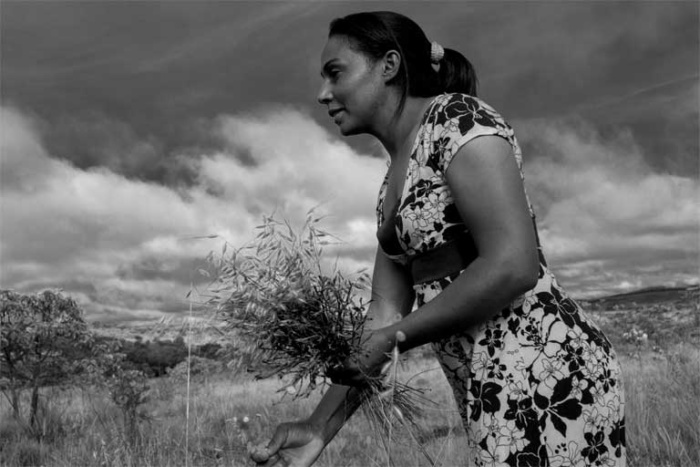
News from LAB
Bear with us: there’s lots happening. In fact LAB is bustling with new projects and ideas, with a panel of over 80 volunteers, translators and new authors writing articles and reviews for our website. Some of our news:
- Crowdfunding for our mining book The Heart of Our Earth exceeded its target and brought in £16,000. We hope that the book will be published in mid-2022. We still need more funding: donations can be made here.
- LAB has launched a new service called REI (Research Engagement & Impact). We will partner with university researchers to help them reach wider audiences ‘beyond the campus’. Our first two projects are with Cardiff University (Indigenous Brazil Violated) and Kings College London (Women Resisting Violence). A brochure describing the work can be downloaded here.
- On 13 March LAB will hold a webinar about state violence and student protest. This is the first of three webinars based on new research and interviews in our Voices of Latin America Project. More details soon, or contact Emily.Gregg@lab.org.uk
- Mexico Inside Out by Nick Caistor will be published and launched on April 16 as part of a Mexico online mini-festival organised jointly with FLAWA and Movimientos
- Crossed Off the Map – travels in Bolivia by Shafik Meghji will be launched in the autumn of this year
- From March, we will be offering some free LAB books and a special guest-edited quarterly newsletter in return for a monthly or annual paid subscription. More details soon.
Water, land & mining
Jasmine Haniff, a LAB intern studying at Goldsmiths College, has written about the movement to confer legal rights on rivers, as part of a wider ‘rights of nature’ movement. She describes DECOIN, a grassroots organisation in the Intag Valley, Ecuador, and their work to protect their rivers from the depredations of the Llurimagua copper mine project. She also shows how five years on from the Fundão tailings dam collapse at Mariana, Brazil, residents of Espirito Santo, 600 kilometres away at the mouth of the Rio Doce, are still fighting Vale and BHP, the mine operators, for proper compensation for their lost fishing and tourism business at the mouth of the Rio Doce. According to Christian Aid, communities around Brumadinho face similar problems, two years after the tailings dam collapse there which claimed up to 270 lives.
In Chile, the 1981 dictatorship constitution effectively converted water into a traded commodity. At El Melón in the Valparaiso region, writes LAB researcher Kinga Harasim, local communities have no access to running water, while AngloAmerican’s nearby El Soldado copper mine draws 27,000 litres per minute from deep wells into the aquifer.
Kinga also examines how ownership of natural resources, especially minerals, is a vital issue for the region’s governments. ‘How nice would it be,’ said Evo Morales in January 2020, ‘for the three South American countries [Bolivia, Argentina & Chile] to industrialise our lithium, as a people and as a state.’ The new government of Luis Arce is likely to pursue that policy, in partnership with foreign mining companies, but attempting to retain more of the value added by manufacturing lithium products locally. But mining remains highly controversial in Bolivia, writes Tom Gatehouse, as signalled perhaps by the unexplained death of former miners’ leader and prominent MAS supporter Orlando Gutiérrez.
Are mineral riches a blessing or a curse?, ask Thais Borges and Sue Branford, in a rapid survey of the history of mining development in Brazil, and a report on how mining companies have devastated communities along the lower Amazon. In Argentina, as in Brazil, indigenous communities have been the most affected. Carole Concha Bell describes the Mapuche groups in Patagonia have been campaigning against Joe Lewis and the Benetton clothing company who own vast estates with mining and tourism potential in Rio Negro.
Brazil
President Jair Bolsonaro and his extreme supporters were big losers in Brazil’s local elections in December. The left also polled poorly and it was rather traditional moderates of the centre right who were successful, argues Jan Rocha, who also reports serious research by the University of São Paulo which concludes that the Bolsonaro deliberately disseminated coronavirus around the country.
Bolsonaro seems unperturbed, according to Sue Branford and Thais Borges, with the further gutting of environmental agencies, regulation and enforcement. Academic freedom is now under heavy attack, according to David Treece. UK-based Scholars for Academic Freedom in Brazil has been set up to campaign on the issue.
Brazil’s indigenous groups warn of the devastation caused by Covid-19, writes Ella Barnes, as some of their oldest and most respected leaders succumb to the disease. Conditions in hospitals in Manaus and in surrounding indigenous communities are now so bad, report Sue Branford and Thais Borges, that the state government of Amazonas has begged the international community to send medical aid.
This year Carnival in Recife was suspended, writes Malcolm Boorer, something not seen even when the city was threatened in 1926 by the revolutionary movement led by Luis Carlos Prestes.
Hope remains, however, in unexpected quarters. Sue Branford and Thais Borges describe the groups of indigenous and quilombo communities in the Serra do Espinhaço, a mountain range bordering Brazil’s Cerrado, who make a sustainable living harvesting wild sempre-vivas flowers, much in demand for long-lasting flower arrangements. Their work and lifestyle have been recognized as a Globally Important Agricultural Heritage System by the UN’s FAO.
Women

A huge boost to progressive change for women in Latin America came on 30 December when Argentina’s national congress at last passed a historic bill to legalise abortion up to the 14th week of pregnancy. This followed years of campaigning by the pañuelo verde (green scarf) movement. Rosie Thornton explains the background. However, in maternity wards Argentine women are often ignored, coerced and injured during childbirth, says Marilyn Thomson, reporting on the Las Casildas movement which supports mothers.
Nina Meghji interviewed Queer Tango dancer Edgardo Fernández Sesma, for LAB’s Voices book in 2016. She caught up with Edgardo again recently, as he talked about work during lockdown to raise awareness of homophobia, transphobia, femicide and elder abuse.
Film & Culture
LAB editor Rebecca Wilson and our film editor Karoline Pelikan have launched a new aspect of LAB’s work, with film reviews and articles and in future mini-festivals and screenings. Most of the articles contain links to trailers or viewings:
- A round-up of the Latin America contenders for the 2021 Oscars.
- Brief notes, with links, on the ten best recent Latin American indie films available to stream in the UK.
- Lia Gomez-Lang previews a round-up of Latin American films about migration.
- Review by Sounds & Colours’ Chaka Grier of Once Upon a Time in Venezuela
- Review by Rebecca Wilson of Guatemala’s Oscars contender, La Llorona
- Review and interview with director Nick Macwilliam, of Santiago Rising, about the student protests in Chile
- Interview by Karoline Pelikan with Maite Alberdi, director of The Mole Agent.
- Guardian documentary about Lupita Vasquez, a Tzotzil-Maya mother, leader and organiser of Mexican women’s organisation Las Abejas
- Documentary by LAB partners Ojos Ilegales, Venezuela, about the Pumé communities near the Colombian border, harassed by cattle ranchers.
- Review of documentary short, El Silencio del Rio, an Oscars contender by Peruvian director Francesca Canepa.
Finally, LAB supporter Chris Tyrrell came across a hoard of political posters from Central America he had accumulated during the 1980s and 90s.
In other news
In what we hope will be the first of a series of articles contributed by Banana Link UK, Paul Lievens explains that an export bonanza during the pandemic has failed to improve conditions or pay for banana workers. Tim Whewell’s BBC documentary exposes the use of highly toxic chlordecone on Martinique’s banana plantations. Argentina is being tempted by Chinese capital, writes Dennis Groelmer, on offer for expanding massive factory farming of pigs. Floor van der Hoot reviews Ben McKay’s book The Political Economy of Agrarian Extractivism, lessons from Bolivia. Carole Concha Bell reports on the violent repression of protests in Haiti against government corruption. Rebecca Wilson describes the assassination on 15 January of Afro-Colombian community leader Fredman Herazo Padilla. And, finally, what will the Biden presidency mean for Latin America?, asks J.D.Fuller.
